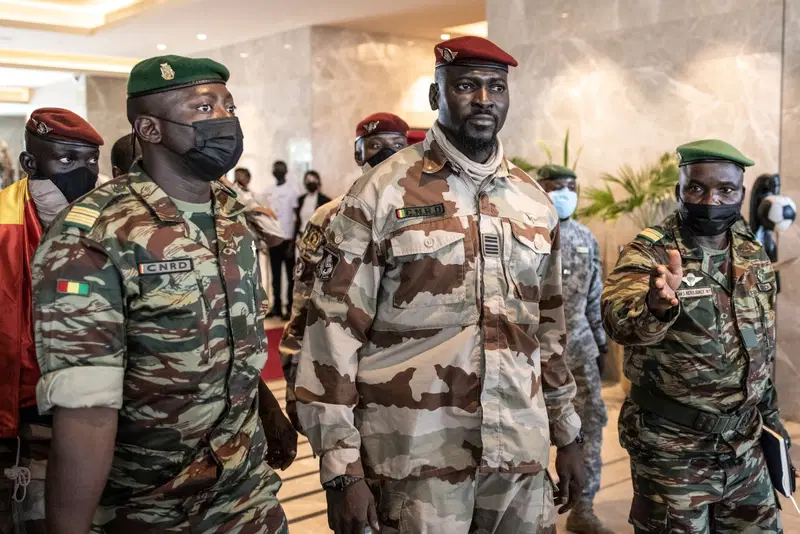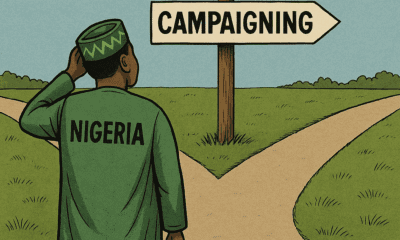Breaking News
Guinea Referendum Sparks Power Grab Accusations as Junta Eyes Presidency
Guinea’s junta stages a referendum on a new constitution allowing elections but possibly enabling leader Mamady Doumbouya to run for president. Opposition boycotts amid crackdown.

Four years after seizing power, Guinea’s ruling junta is staging a referendum on a new draft constitution that could clear the way for elections — but also open the door for military leader General Mamady Doumbouya to contest the presidency.
The Sunday vote, boycotted by the opposition, is being billed as a milestone toward restoring civilian rule. About 6.7 million Guineans out of a population of 14.5 million are eligible to vote in the West African nation, one of the poorest in the world despite its vast reserves of bauxite and iron ore.
General Doumbouya has ruled with an iron grip since toppling civilian president Alpha Condé in 2021. While the junta initially promised a return to civilian rule by the end of 2024, critics say the referendum is designed to stall real elections and cement Doumbouya’s hold on power.
“Since 2021 there has been no electoral contest of any kind… it seems pretty clear (a run for office is) the direction where things are going,” Franklin Nossiter, a Sahel analyst at International Crisis Group, told AFP.
The new constitution would replace the current “transition charter,” which bars junta members and officials from running in elections. That restriction is absent from the draft, fueling speculation that Doumbouya intends to contest.
Opposition leaders have called the vote a sham and urged citizens to boycott. Since 2022, the junta has banned demonstrations, jailed or exiled opposition figures, and suspended major political parties and media outlets, creating what observers describe as a blanket of silence on dissent.
Despite this, Prime Minister Amadou Oury Bah insists the draft constitution reflects national aspirations. “In terms of democratic progress, the constitutional project has taken into account all the demands that have more or less been made by society, both political and civic,” he told AFP.
The 199-article draft contains progressive measures, including a High Court of Justice to try presidents and ministers, creation of a Senate, and a 30 percent gender quota in decision-making positions.
But critics point to provisions that effectively sideline key rivals: candidates must be between 40 and 80 years old and permanently resident in Guinea — conditions excluding exiled former president Condé, 87, and opposition leader Cellou Dalein Diallo, 73.
Meanwhile, the government’s “yes” campaign dominates the streets, with posters of Doumbouya across Conakry, while the “no” campaign is barely visible.
Opinion Nigeria News










